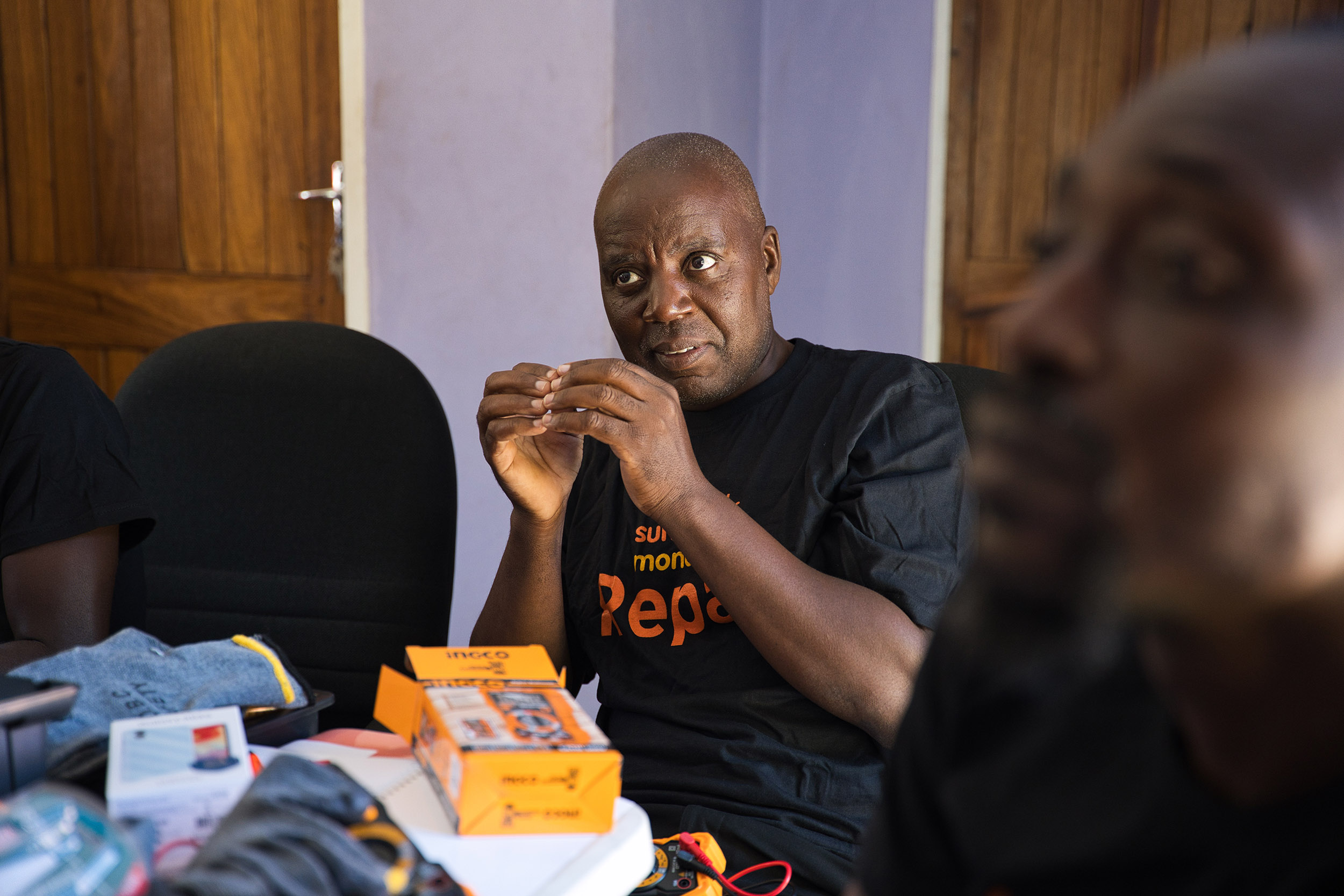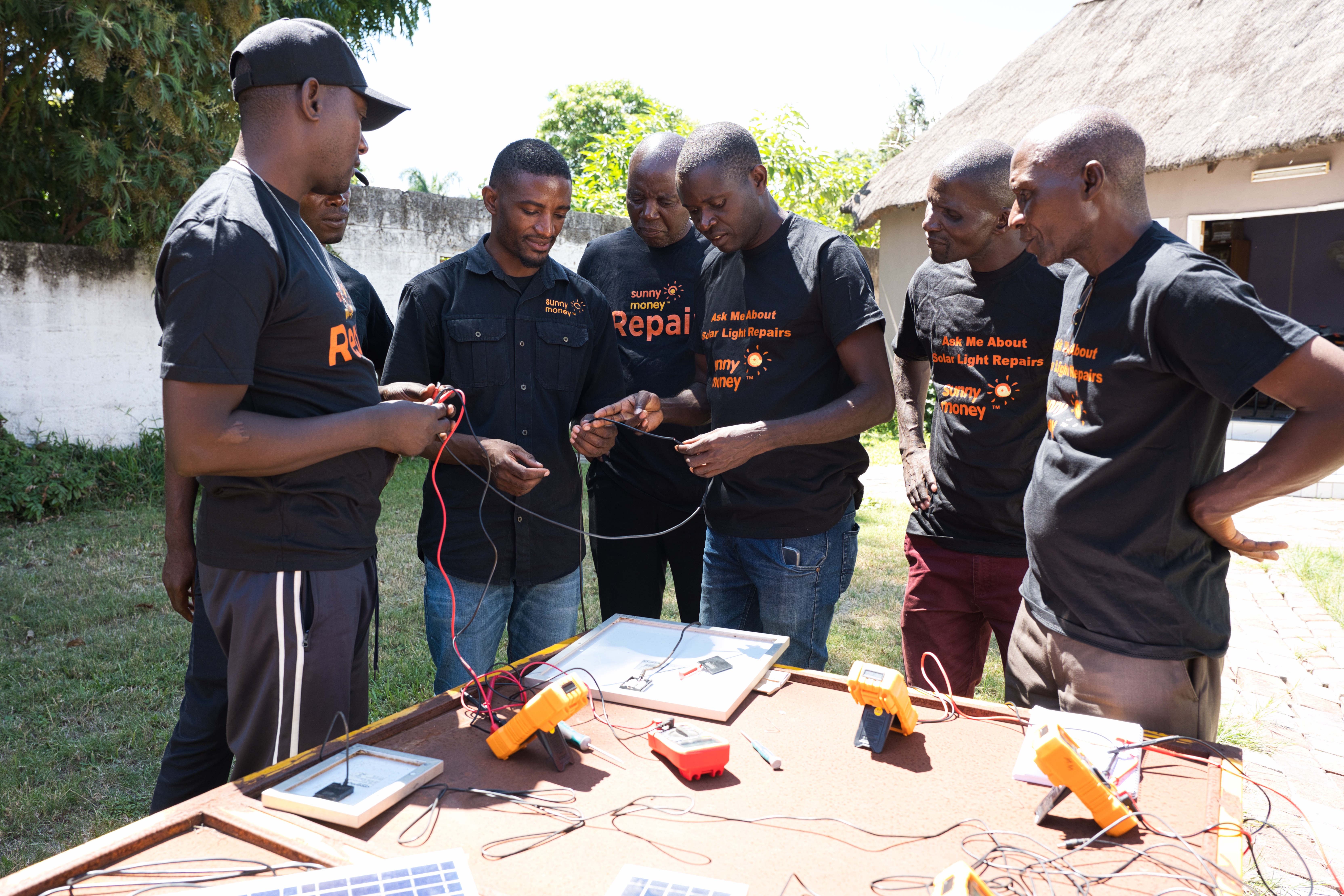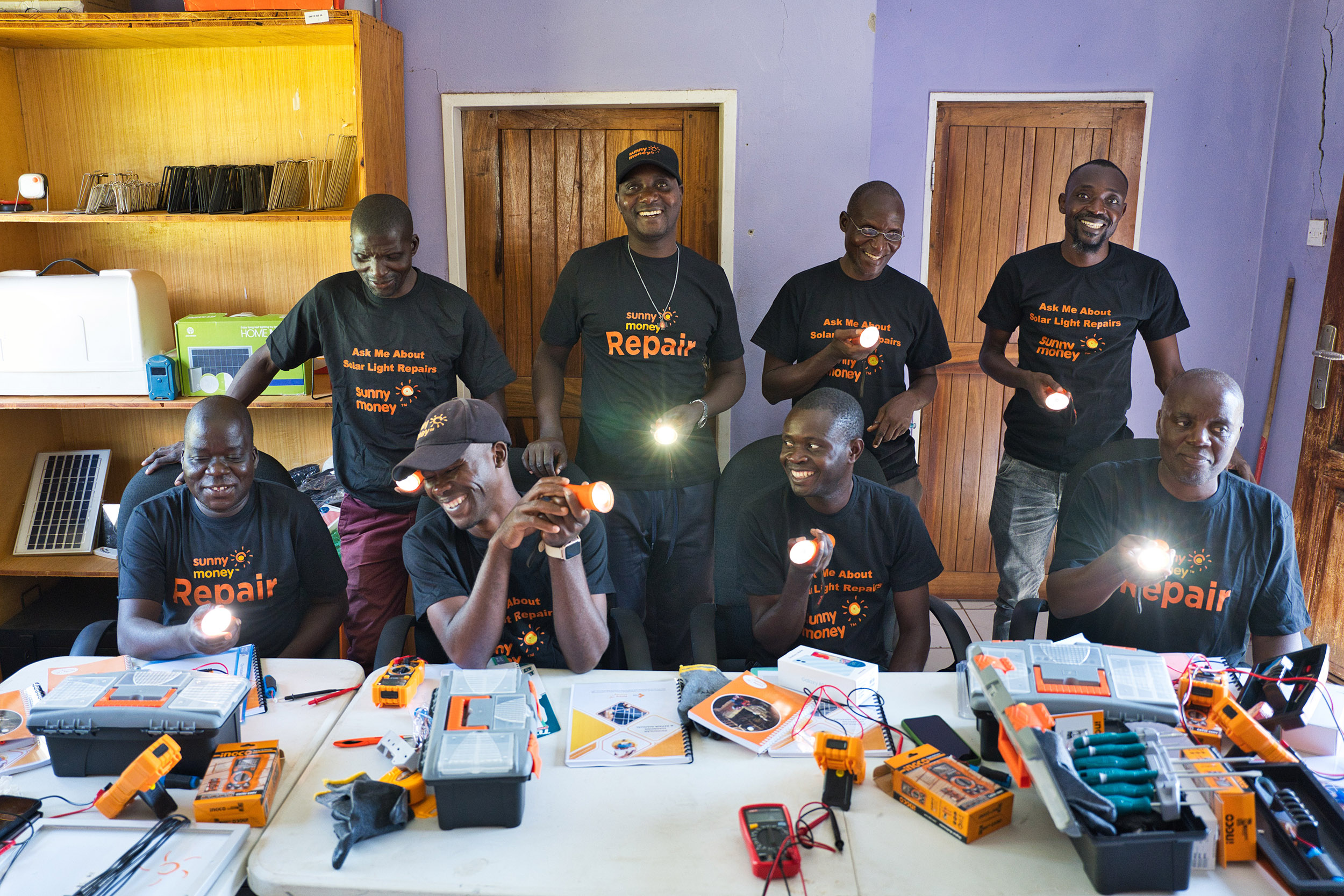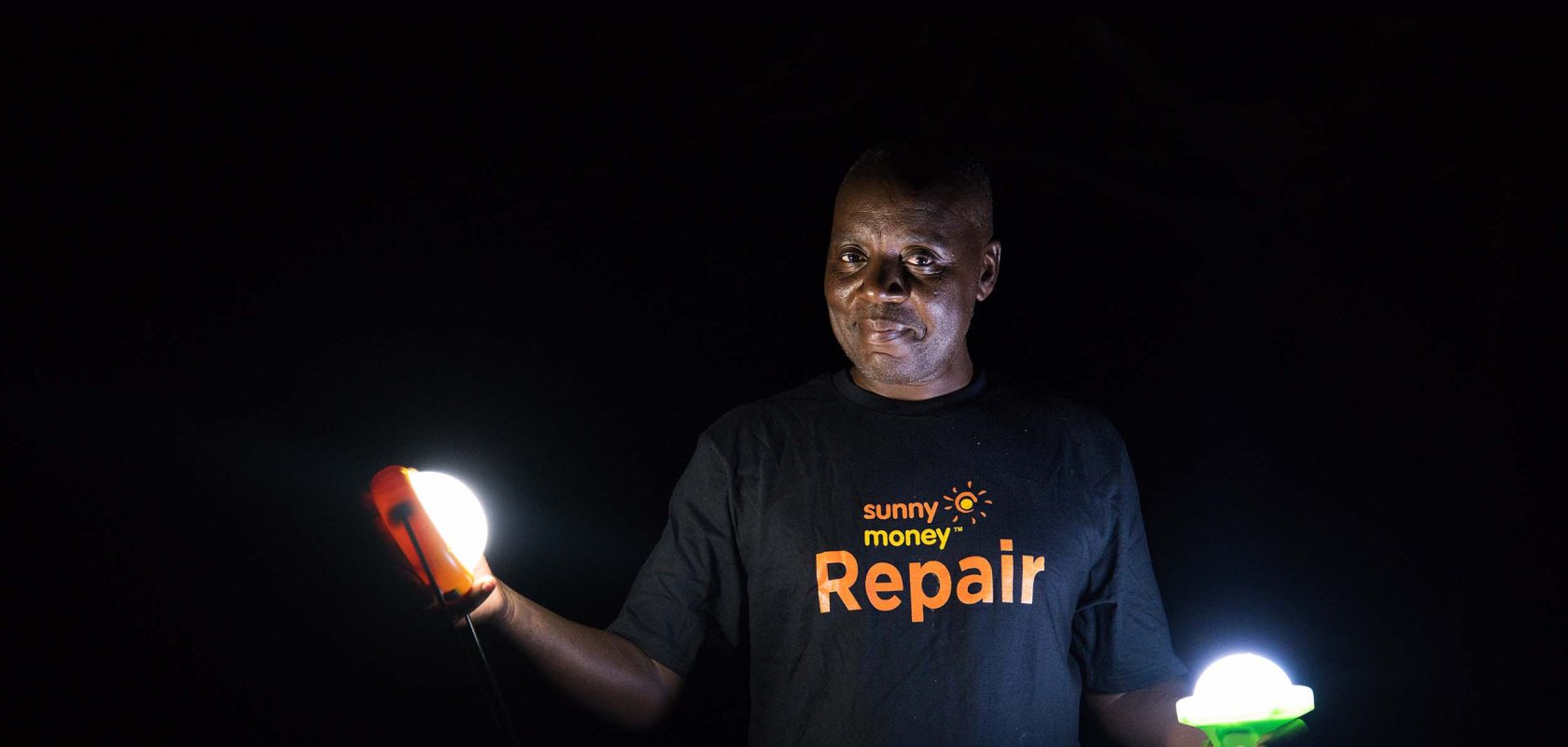“It was great to learn the makeup and components of a solar light. It brought some excitement to me and I told myself that I will definitely go back and practise more of what I had learnt in terms of diagnosis and repair of such components.”
These are the words of Moses Mate (55), a primary school headteacher from Mongu District in Western Province, Zambia, who also works as a Solar Entrepreneur. He can now add ‘Repair Technician’ to his two other titles, Moses laughs and says, “I just gained the skill of being a Repair Technician so I might as well just be called one.”
Together with eight other Solar Entrepreneurs, Moses had just completed a three-day solar repair training in Lusaka, organised by SolarAid Zambia, aimed at upskilling rural solar entrepreneurs. The training focused on diagnosing faulty solar lights and equipping participants with vital repair skills, giving a second life to solar products and helping to reduce the growing problem of electronic waste.

SunnyMoney Solar Entrepreneur Moses Mate attending the solar repair training for Agents and Repair Technicians at SunnyMoney/SolarAid in Lusaka, Zambia
Moses, who has spent 26 years in the teaching profession, explained how important this dual role is to him: “Having been in the teaching service for the past 26 years, I like my job because of the fact that I am contributing to national development by bringing education closer to down-trodden, rural areas so that they can also benefit from education and not be left behind. This is also the reason why I got so much interest in SunnyMoney and becoming an [solar] Agent, because the idea was to provide lighting to students in rural areas as they are disadvantaged due to lack of electricity there.”
The training combined both theoretical sessions and hands-on practice, covering a range of repair techniques for different types of solar lights, from diagnosing faults to replacing components like batteries and troubleshooting more complex issues. For Moses, the most challenging part of the training was learning to use the multimeter. “Of course I know some of the terms like amperage and voltage because we learnt at school, but it was how to use the multimeter, setting it up and getting correct readings. So that was a bit of a challenge to me but I eventually got it as the training progressed.”

Moses was impressed by the depth of the training and its practical approach. “The training was so good and helpful. We learnt more than what I expected and we walked through a number of areas around repair.” He also highlighted the environmental impact of the skills he learned, noting that many people dispose of broken solar lights without realising the damage they can cause. “Most people, when their light breaks, just keep them in their houses and later dispose of them. I will now be able to advise my customers whose light is old and broken, not to just dispose of it in a field, as some of its components can be dangerous to the environment. I will encourage them to bring such to me so that I can have a look, and if beyond repair, they shouldn’t just dispose of it anyhow but be mindful of where they dispose of such waste.”
The training in Lusaka came at a critical time for Zambia, as the country is currently facing one of its worst droughts in decades, with the Kariba dam—responsible for much of the country’s hydroelectric power—drying up. Moses spoke passionately about the importance of solar energy in these challenging times. “The effects are there for all to see, what has happened this year, the drought from the El Niño effect, which I believe is associated with climate change… I talk to my pupils about climate change and alternative energy sources like solar. I think they are very much aware of these issues and we teach them. For rural communities like one close to my school and exposed to solar lights, solar has become part of their lives and they know the importance.”
“Solar lights do play a part because they use clean energy from the sun. They don’t emit fumes or smoke like petrol or kerosene, making it safe and clean. Maybe the issue might be on the e-waste aspect and improper disposal of the same. However, if managed properly using initiatives such as repair and safe e-waste disposal mechanisms, I think it wouldn’t be much of a problem.”
Now, with the knowledge gained from the training, Moses is eager to offer solar light repairs to his customers. “I have a better understanding of what I am selling. And I think I will be able to attend to some of the faults on the lights which the customers will bring.”

Group photo of participants of the solar repair training for Solar Entrepreneurs in Lusaka, Zambia
“Repair is one way to save money that could be used to buy a whole new product when you can just extend the life of that product. Additionally, I think there is no wastage of material because if something is repaired it can work much longer, whereas buying a new product just increases the amount of e-waste when you can just repair what is available.”
Looking to the future, Moses are looking forward to passing on his new skills to his children, and he also has big plans for his solar business. “I would like to expand the business and maybe build a shop where I can stock the lights and have a brand name where I can specialise in solar lights and products. This is something I would invest in post-retirement.”
—
Learn more about the potential of rural repairs and giving second life to life saving solar lights
